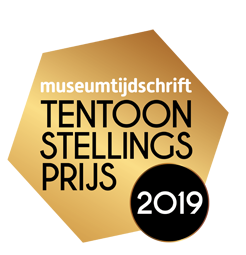During his Drenthe trip Van Van Gogh wrote 24 letters, almost all of them to his brother. They can be read as a kind of travel journal. The letters, which are kept at the Van Gogh Museum (Vincent van Gogh Foundation), are some of the finest he wrote. Allow Van Gogh’s words to take you with him to Drenthe, and experience what he saw, thought and felt.
You can read the complete letters at: vangoghletters.org
Hoogeveen
11 September
‘I’ve just arrived here. […]
I’ve been talking to people here, and in a day or two I’ll take the barge and travel all the way down the Hoogeveense Vaart through the peat bogs, right across the south-east corner of Drenthe. Then, northwards from here it seems that there’s magnificent heathland all the way to Assen.
I’m certainly curious, as you can imagine. […]
I hope to await your next letter here, this is a country lodging-house near the station. Address the letter care of A. Hartsuiker, lodging-house keeper at Hoogeveen.’
14 September
‘The two hamlets on the heath where I’ve been […] are called Stuifzand and Zwartschaap. I’ve also been in various other places, and now you can imagine how unchanged it still is here, since Hoogeveen is a town after all, and yet nearby there are shepherds, those ovens, those turf huts &c.’
16 September
‘Everything is beautiful here, wherever one goes. The heath is much vaster than it is in Brabant, near Zundert or Etten at least — rather monotonous, particularly when it’s afternoon and the sun’s shining, and yet it’s that very effect, which I’ve already vainly tried to paint several times, that I shouldn’t want to miss.’
21 September
‘At first I had some trouble here with models on the heath, where people laughed about it and I was ridiculed and couldn’t finish figure studies that I’d started because of the unwillingness of the models, although I had paid them well, at least for these parts. I stood firm, though, and concentrated on a single family in that same place, where I can now get an old woman, a girl and a man, and have hopes that they’ll remain willing.’
24 September
‘Went further into the peat fields last week — marvellous scenes, the longer I stay here the more beautiful I find it, and from the outset I’ll try to stay here in this region. For it’s so beautiful here that at the same time a great deal of study is needed to capture it, and only solid work can give a truer understanding of things as they are at bottom, and of their serious, sober nature.’
26 September
‘And if I look at my things, they’re too poor, too inadequate, too much exhausted. We’re having gloomy, rainy days here, and when I come into the corner of the attic where I’ve installed myself it’s all remarkably melancholy there — with the light from one single glass roof tile that falls on an empty painting box, on a bundle of brushes with few decent bristles remaining, well it’s so curiously melancholy that luckily it also has a funny enough side not to weep over it but to regard it more cheerfully.’
28 September
‘I’ve now been here for about a fortnight and I speak from experience when I tell you that in many, indeed in all respects my tools and equipment and supplies prove to be inadequate.
Hoogeveen itself is indeed on the map as a town, where it’s marked with a red dot, but in reality it isn’t (there isn’t even a tower). So I can’t even get any drawing materials. I’ll be even more embarrassed deeper in the countryside and must be prepared for everything or, I repeat, it would be madness. I wouldn’t be making haste with this were the season not so far advanced that it compels me to the greatest urgency.’
Nieuw - Amsterdam/ Veenoord
3 October
‘This time I’m writing to you from the very back of beyond in Drenthe, where I arrived after an endless trip through the heath on the barge.
I see no way of describing the countryside to you as it should be done, because words fail me. […]
How I wish that we could walk together here and — paint together. I believe that the countryside would win you over and convince you. Adieu, I hope that you’re well and will have a bit of good fortune. I thought about you again and again on this trip.’
7 October
‘I’m writing to you again now that I’ve walked around this village for a couple of days. What I find beautiful is everywhere here. That’s to say, there is peace here.’
12 October
‘Will you now, old chap, simply take it from me when I say that as I write to you I’ve got something back of what I had years ago. That I’m again taking pleasure in windmills, for example, that particularly here in Drenthe I feel much as I did then, at the time when I first began to see the beauty in art.’
12/13 October
‘I now have a reasonably large room where a stove has been placed, where there happens to be a small balcony. From which I can even see the heath with the huts. I also look out on a very curious drawbridge. Well, downstairs is an inn and a peasant kitchen with an open peat fire, very cosy in the evenings. One can think best by one of those peasant hearths with a cradle beside it. If I feel melancholy or can’t work something out, I just go downstairs.’
15 October
‘Now not a day passes, so to speak, but that I make one thing or another. I can’t help but make progress precisely through learning by doing; every drawing one makes, every study one paints is a step. […] In a while, longer or shorter, I don’t know how long, I’ll reach a point where I start selling.’
16 October
‘Moreover, it’s curious enough, to my mind, that there’s a change in me too at this very time. That at this very time I come into surroundings that so mightily engross me, order, regulate, fix, renew, enlarge my thoughts, that I’m wholly absorbed in them.
And can write to you full of what these silent, gloomy heaths engender in me. At this very moment I feel in me the start of something better. Something that isn’t there yet, but nevertheless I see in my work things that only recently I didn’t have.’
22 October
‘I’m scratching a few more things from around here. I can’t describe to you how beautiful the countryside is. When I paint a bit better — then! Arrange things for me exactly as it works out best; I’d learn here and also learn there, I think.’
26 October, to his parents
‘We have, by turns, beautiful, clear autumn days here and stormy ditto. Actually I find the latter the most beautiful, even though they make it more awkward to work outdoors, even though it’s sometimes completely impossible to do so. All the same, going out and reworking a study one has made on a fine day in accordance with what one sees outdoors in the rain can be done, and it satisfies me.’
28 October
‘And wanted to tell you the people here don’t seem to me to be unpleasant or scheming. There’s something benevolent here, and I believe that you could do exactly what suits you best here. There is here — a surprisingly youthful atmosphere.’
31 October
‘You have seen Drenthe — from the train, in haste, long ago. But remotest Drenthe, if you come here, will make a very different impression on you, and even you will feel just as if you were living in the age of Van Goyen, Ruisdael, Michel; in short, in what one scarcely finds now even in present-day Barbizon. It seems to me that this is something important, because nature like this can sometimes awaken in a mind things that would otherwise never have woken. I mean something of that free, cheerful spirit of the past, I mean that nervous wavering can be silenced that way.’
2 November
‘Just wanted to tell you about a trip to Zweeloo […]
The ride into the village was really so beautiful. Huge mossy roofs on houses, barns, sheepfolds, sheds. The dwellings here are very wide, among oak trees of a superb bronze. Tones of golden green in the moss, of reddish or bluish or yellowish dark lilac greys in the soil, tones of inexpressible purity in the green of the little wheatfields. Tones of black in the wet trunks, standing out against golden showers of whirling, swirling autumn leaves, which still hang in loose tufts, as if they were blown there, loosely and with the sky shining through them, on poplars, birches, limes, apple trees. The sky unbroken, clear, illuminating, not white but a lilac that cannot be deciphered, white in which one sees swirling red, blue, yellow, which reflects everything and one feels above one everywhere, which is vaporous and unites with the thin mist below. Brings everything together in a spectrum of delicate greys.’
5 November
‘[…] be a Painter — and in so doing as a person you will, after that spell of years of outdoor life and manual work, as a person you will, in the end and in the passage of years, gradually become something better and deeper. I firmly believe this.’
8 November
‘So it seems to me that all our forces must be concentrated in the direction of painting, with the greatest determination and as being the raft to get ashore after the shipwreck. Undertaking it in all cheerfulness.’
11 November
‘Well brother, to change the subject, it’s snowing here today in the form of colossal hailstones. I say it’s snowing because of the effect. I’m keeping silent about the beauty of it here, because I would have TOO MUCH to tell you about it. […]
Drenthe is so beautiful, it absorbs and fulfils me so utterly that, if I couldn’t stay here forever I would rather not have seen it at all. It’s inexpressibly beautiful.’
12/13 November
‘There’s no more painting out of doors now, because it’s far too cold these days. But what a relief it would be for me if I could settle in these parts permanently.
The rent is very low; if one only had company it would be such a wonderful thing to rent a peasant cottage and to arrange everything solidly and less precariously than in an inn.’
26 November
‘As to myself, I have moments when all my own prospects seem very dark to me […]’
1 December
‘I say loneliness and not even in peace — but that loneliness which a painter in an isolated region encounters when every Tom, Dick and Harry takes him to be a madman — a murderer — a vagabond &c. &c. Granted it may be a petty vexation, but a vexation it is. Being a stranger, doubly strange and unpleasant — however stimulating and beautiful the countryside may be. […]
And the harder I work, the more hard-pressed I become. We’re now at a point where I say: at present I cannot go on.’





